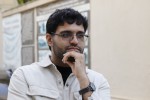Baku, Damascus find common ground in a changing Middle East [ANALYSIS]
After years of regional turmoil, political estrangement, and shifting alliances, Azerbaijan and Syria have finally found the time—and the opportunity—to sit across the table and ask a vital question: where do we go from here?
The long-awaited visit of Syrian Transitional President Ahmad Al-Sharaa to Baku is far more than a formality. It signals the rebirth of a relationship that had once stagnated under the weight of poor decisions by Syria’s former leadership. It also marks the entry of Azerbaijan into a broader, more proactive Middle East strategy—one that aligns reconstruction with diplomacy, energy with outreach, and quiet influence with tangible development.
This historic meeting comes on the heels of prior engagement between President Ilham Aliyev and President Al-Sharaa at the Antalya Diplomacy Forum. That encounter laid the foundation for a renewed diplomatic dialogue, but what’s unfolding now is a strategic realignment. Azerbaijan, having restored its full territorial integrity and adopted a post-victory foreign policy posture, is now exporting more than oil and gas—it is exporting trust, technical experience, and a model of post-conflict reconstruction that has drawn international attention.
Baku’s outreach to Damascus is not an isolated act of goodwill—it is part of a broader regional vision. Over the past two years, Azerbaijan has taken concrete steps to assist Syria’s post-conflict recovery. A delegation led by Deputy Prime Minister Samir Sharifov visited Syria on the instructions of President Aliyev, assessing where Azerbaijani expertise could contribute—from infrastructure to energy and humanitarian aid. This is development diplomacy in action, one that extends beyond words to boots on the ground, investment plans, and real partnership.
The visit also reflects Azerbaijan’s transformation into a country of global diplomatic weight. No longer constrained to South Caucasus affairs, Baku has emerged as an........






















 Toi Staff
Toi Staff Gideon Levy
Gideon Levy Tafi Mhaka
Tafi Mhaka Tarik Cyril Amar
Tarik Cyril Amar Belen Fernandez
Belen Fernandez Somdeep Sen
Somdeep Sen Eric Reinhart
Eric Reinhart Moncef Khane
Moncef Khane Samer Jaber
Samer Jaber Marcel Fürstenau
Marcel Fürstenau Yara Hawari
Yara Hawari
